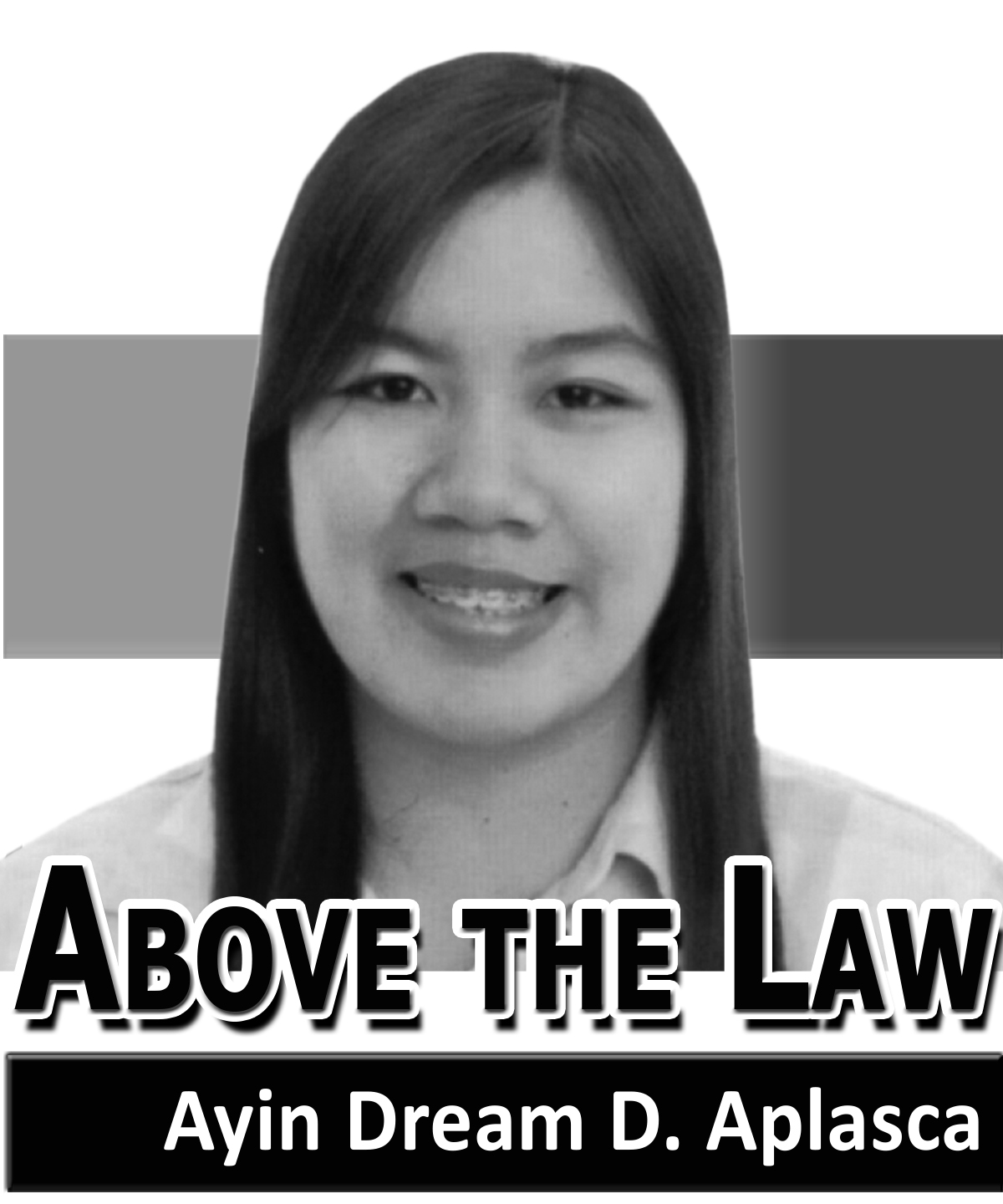
[av_one_full first min_height=” vertical_alignment=” space=” custom_margin=” margin=’0px’ padding=’0px’ border=” border_color=” radius=’0px’ background_color=” src=” background_position=’top left’ background_repeat=’no-repeat’ animation=”]
[av_heading heading=’Separate personality’ tag=’h3′ style=’blockquote modern-quote’ size=” subheading_active=’subheading_below’ subheading_size=’15’ padding=’10’ color=” custom_font=” av-medium-font-size-title=” av-small-font-size-title=” av-mini-font-size-title=” av-medium-font-size=” av-small-font-size=” av-mini-font-size=” admin_preview_bg=”]
BY AYIN DREAM D. APLASCA
[/av_heading]
[av_textblock size=” font_color=” color=” av-medium-font-size=” av-small-font-size=” av-mini-font-size=” admin_preview_bg=”]
February 6, 2018
[/av_textblock]
[av_textblock size=” font_color=” color=” av-medium-font-size=” av-small-font-size=” av-mini-font-size=” admin_preview_bg=”]
IT’S BEEN a while since my last article. I’m supposed to write my legal standpoint regarding the Securities and Exchange Commission’s (SEC) decision on Rappler’s case.
I downloaded the 29-page decision. Unfortunately, I wasn’t able to read it because of my case load. As much as I want to write about it, I will just focus on one topic that could be applied not only in Rappler’s case but on every corporation existing under Philippine laws.
One of the first topics taught in Corporation Law in law school is “separate personality” of a corporation. What does it mean?
Section 2, Title I of the Corporation Code defines corporation as “an artificial being created by operation of law, having the right of succession and the powers, attributes and properties expressly authorized by law or incident to its existence.”
As an artificial being, a corporation has a personality separate and distinct from its stockholder. As a general rule, a corporation may not be made to answer for acts and liabilities of its stockholders and vice versa. This is called the “veil of corporate fiction.”
The landmark case of Kukan International Corporation vs Reyes, et al. (G.R. No. 182729, Sept. 29, 2010) discussed the same subject and principle with Rivera vs United Laboratories, Inc. There are exceptions wherein the veil of corporate fiction may be disregarded or “pierced” such as when the corporation is being used to:
1) defeat public convenience as when the corporate fiction is used as a vehicle for the evasion of an existing obligation;
2) in fraud cases or when the corporate entity is used to justify a wrong, protect fraud or defend a crime; or
3) alter ego cases, where a corporation is merely a farce since it is a mere alter ego or business conduit of a person, or where the corporation is so organized and controlled and its affairs are so conducted as to make it merely an instrumentality, agency, conduit or adjunct of another corporation.
“In the absence of malice, bad faith or a specific provision of law making a corporate officer liable, such corporate officer cannot be made personally liable for corporate liabilities.”
The law provides that a corporation may acquire, possess and lease property in its name. As an artificial being, it may also transact and commit acts expressly authorized by law or incidental to its existence. Thus, the stockholders are not the owners of corporate property which is owned by the corporation as a distinct person.
As a general rule, the corporation can only act through its board of directors or board of trustees. These acts are embodied in board resolutions and confirmed in the certificates issued by the corporate secretary. And for discussion purposes, board of directors are for stock corporations while board of trustees are for non-stock corporations.
As an exception, there are certain acts which require the approval of the stockholders. Examples of these are extending or shortening the corporate term, increasing or decreasing the capital stock and investing in a business for purpose other than the primary purpose for which the corporation was organized.
The main objective of this is to regulate the relationship between the corporation and the individual. If not examined well, this will put the corporation in trouble spot.
For some reason of complexity in the creation and existence of a corporation, it is highly recommended that corporations should secure the services of a retainer counsel for corporate and legal matters. (Atty. Ayin Dream D. Aplasca practices her profession in Iloilo City. She may be reached thru ayindream.aplasca@gmail.com/PN)
[/av_textblock]
[/av_one_full]



